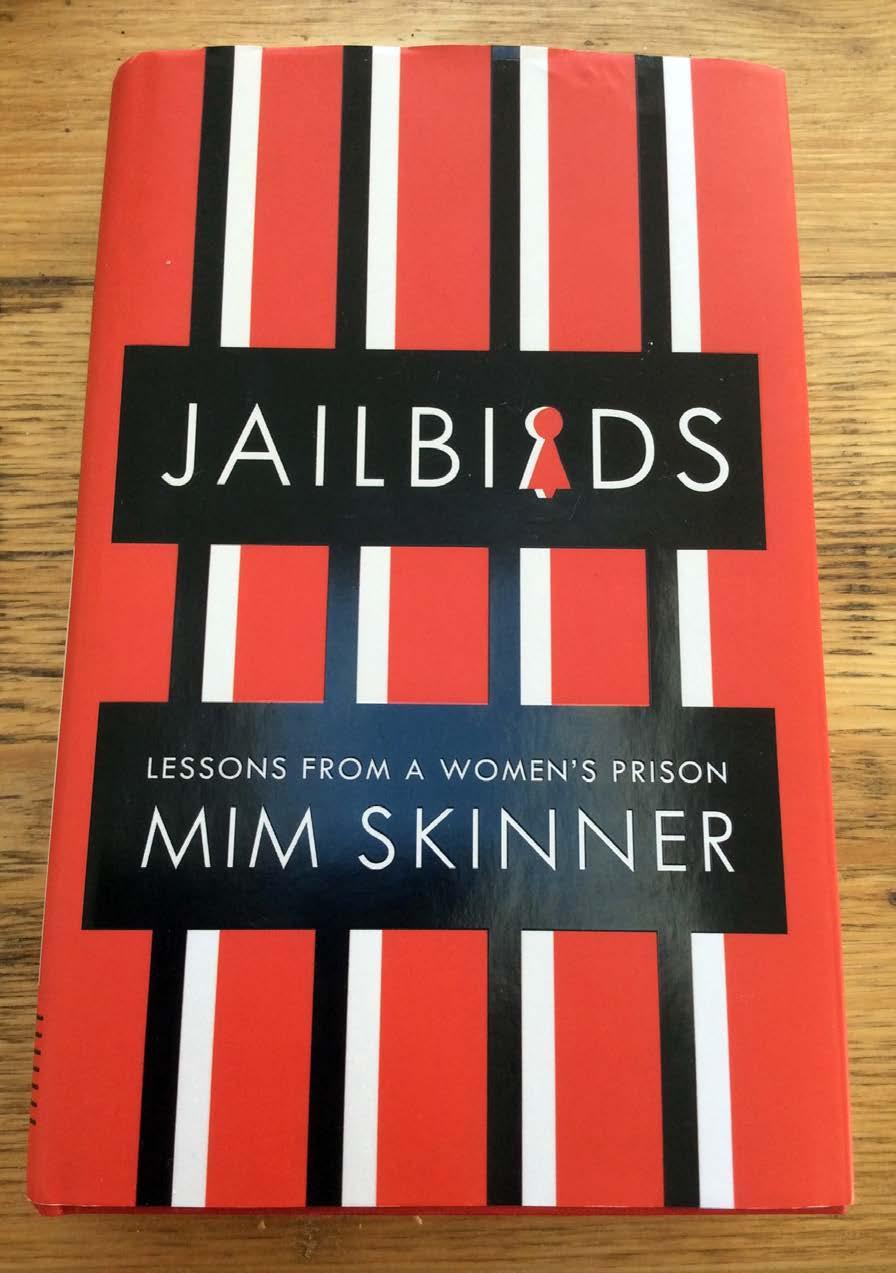
11 minute read
India Thorogood
FOUR THINGS I’VE LEARNT ABOUT CHANGING THE WORLD
India Thorogood, campaigner and lead community organiser for a political party, gives her top tips.
Advertisement
I was told by my parents that I could do anything, but I was also proudly told I was working class. The two statements seemed to contradict each other. Telling posh people at Sussex University that I was from Essex was like watching them smell milk gone off from their students’ fridge. When I told one person my Dad was a scaffolder, the response was “Do people still do that?”
I realised from a young age, things were not always fair for families like mine. Slowly I started to believe I had to change that. My Dad was unemployed for long periods and when he wasn’t, he would tuck me into bed and go off to work nights scaffolding the skyscrapers of big banks in London. The same banks that were responsible for the financial crash that sent families like mine to the job centre or food bank.
My uncle was in prison for most of my childhood and the police came knocking for my brother, but, apart from one teenage incident of filling my bags with as much make up as I could, I managed to stay out of trouble.
Pushed by my parents, who do jobs they’ve never really cared for, I had the opportunity to do something I really cared about. So, I took that feeling that so many of us feel, that things aren’t always fair - and I have tried to find out if it really is possible to change the world. Here’s what I’ve learnt by working as a campaigner: 1 Start Personal and Local We spend a lot of our lives feeling powerless, but once you have your first campaign win, it’ll make you feel taller than the Eiffel tower and stronger than Mohammed Ali.
Start by picking something in your everyday life. You are more likely to be listened to if the campaign is real, honest and comes from experience. We all care about issues that are close to home – so, if you are starting a campaign against your letting agent, for instance, start by uniting a group of their renters. If you are campaigning to change prisons, organise with the people you are living with in prison or people who have been in prison. 2 Know Your Target I worked for Greenpeace, taking on big corporate “baddies” like car and oil companies who Greenpeace argues are responsible for polluting our lives and funding
climate change. The first thing we and you are not going did was research what makes that company tick - what “Women away. What would have happened if I had does the company pride itself on? How does it make its money? What have campaigned to turn their old taken my school campaign up a notch? If I had brought other students are its values? Same goes for if you’re prison into a Women's together to back my campaign, organised a influencing an individual - like an MP, a local head teacher or Building a place of hope instead peaceful protest outside his office and, if still ignored, sent my letter to business owner. Figure out what a victory looks like - of fear.” the local press? Would he have ignored a teenager’s letter what you want them to do - and read by thousands, including how to make it happen. When we took hordes of parents? on HSBC to stop funding forest destruction, they were spending millions on fancy advertising, so we got thousands of people to comment on their ads on Facebook and made 4 Anyone Can Do It Whether you want to organise your own group or join an existing one our own adverts that went viral. When we won like Sisters Uncut, or your local political the campaign, they announced their policy party, all kinds of skills are needed to create change with a video on Facebook - which change. Groups need people who can design showed we used the right tactics. If we hadn’t flyers, speak to the media or organise the done our research, we wouldn’t have known logistics for meetings and events. what mattered to them - and we wouldn’t have Over the last year, we have watched won. thousands of children go on strike from
3Don’t Give Up, Escalate school to demand our politicians take action on climate change. In New York, women have I started my first campaign as a teenager campaigned to turn their old prison into a with a simple letter to my head teacher Women's Building, a hub for community about the school vending machines. I was support services and women's rights - they invited for a meeting, but he didn’t change a are creating a place of hope instead of fear. thing. When I marched with a million people All of us are capable of winning - and against the Iraq War, aged 12, we were deserving of justice. ignored. The first campaign I was employed I’ve had a good go at trying to change the to work on, we lost. I’ve had my fair share world in my own way but I’ve not changed of painful political losses - but that means the world - or certainly not fixed it - just yet. you start to get an idea of what works and But if people like you put up a fight, woman what doesn’t. by woman, I’ve no doubt that one day we’ll
The trick is to show you are not giving up get there.
CARL’S
OC ARL CATTERMOLE spent a year in HMP Wormwood Scrubs and HMP Pentonville. Out of the experience came his practical guide to
Rsurviving prison.
Prison A Survival Guide offers advice such as how to make a salad dressing in prison, what to take in your ‘bang up bag’ when you go to court and your rights accessing
Nsupport and health care if you have a chronic illness or are disabled. WIP is publishing two extracts from Carl’s book. The first is called ‘Complaints and Applications’
Eand is a handy guide to using the complaints process to change the prison system from within. He doesn’t pretend that it will be easy or that you will win, but, if successful, you can hold members
Rof staff to account and even set legal precedent. The second extract offers concrete advice on what to do and your rights when ‘getting a nicking’ while you are in prison.
URSZULA SOLTYS
CARL CATTERMOLE

Complaints and Applications
EVEN IF YOUR FORM AVOIDS THE bin, the complaints system is purpose designed to be impenetrable. I won’t repeat what I said about the ‘bitter cocktail’, but it applies to this section too. And even if there was a complaint to make then a lot of prisoners have no faith at all in the system.
I saw with my own eyes that this led to

staff members taking the p*** in full knowledge that nothing would ever be formalised against them. So if you are a literate person banged up with all the time in the world then it’s imperative that you stand up and fight The Battle of a Thousand Forms to prove they can’t walk all over you, him, her and anyone else in the future, even if it sometimes does feel futile. I could definitely draw comparisons between trying to escape prison’s steel-clad concrete walls with a teaspoon and trying to get some results from the prison system by using the comps and apps on offer but I’d still encourage you to use it. Here’s the technical process... First, you write a Comp1 complaint form (receiving a useless response to this is just a formality). Then you write a
Comp1a appeal form to take it up the management ladder. Write a Comp2 (light pink form) to ‘confidentially’ (I’ve included inverted commas because some prison officers will open them regardless) take it yet further. If you get another unsatisfactory response and you’ve got a valid point then write to the
IMB (Independent Monitoring Board).
Once you’ve gone through all the internal complaints process, write to the PPO (Prisons and Probations
Ombudsman). You can also write to your MP, the Home Office, a solicitor who deals with jail issues or phone the ever-helpful PAS or Howard League advice line. It can take months to get a result but it’s 100 per cent necessary.
If the system gets told what’s what and you’ve set a legal precedent, it will all seem worthwhile.
Getting a Nicking your recategorisation, ROTL (release on temporary licence) and eventual freedom. I’d strongly recommend calling the Prisoner’s I F YOU DO SOMETHING REALLY silly, you will be arrested within the prison, taken to a criminal court and potentially Advice Service (PAS) on their freephone advice line in this situation. You can also call the Howard League’s advice line if you are given another sentence. But if you do under 21. You should also read the Prison something only a little bit silly, you’ll get a Discipline Manual (aka PSI 47/2011) and ‘nicking’. This is where you’re put through really take your time to study this … two the adjudication process, the prison’s internal hours spent reading mind-numbing legal justice system. […] drear might mean you find that the screws
An officer has to give you two forms failed one tiny guideline and therefore your within 48 hours of the occurrence: nicking will be the first (DIS1, or a ‘nicking dismissed on sheet’) will explain what technicalities. you’ve done wrong and the second (DIS2) “Two hours For proper legal representation you have explains what will happen next. Overleaf reading legal to pay, and for most this isn’t an option however you can write a written statement or request the presence of witnesses. As with the police I’d might mean your nicking will be dismissed.” you can still use a ‘McKenzie Friend’. They are an odd facet of English and Welsh law (it’s slightly different recommend giving no in Scotland and Northern comment until you’ve got Ireland) which allows a proper advice and the situation McKenzie Friend to sit with you, has cooled down. For more serious read documents and provide advice charges, such as possession of a mobile phone even though they can’t represent you. It can or a proper assault, you will face an be a friend, a fellow prisoner or an unpaid ‘Independent Adjudication’ by a visiting solicitor. For more information see www. judge. In this instance you can get legal aid mckenzie-friend.org.uk. and, as ever, when it’s available, I’d strongly As PAS, the Howard League and the recommend you take it. manual will explain, you have a right to see all
For more minor charges you will face a paperwork relating to the charge before the ‘Governors Adjudication’. You can call adjudication starts so be sure to ask for it. […] witnesses (prisoners or members of staff) but Once you’re in the hearing, you will get you should ask them before getting them asked a bunch of questions [...]. Question involved. You can’t get legal aid despite the fact that, if you’re found guilty, it can impact number five is always ‘Do you want legal advice or representation during the hearing »
before proceeding further?’ – this is your best document about prison rules, the chance of adjourning the case and maybe even government’s Prison Service Orders and derailing it. The prison has a legal duty to Prison Service Instructions or the Prison help you locate other prisoners who may have Handbook, which should be available from witnessed an incident, even if you have no the prison library. idea of their name or appearance. You can Can I interrupt myself to say I knew none also ask to see CCTV from the wing. At of this when I was going all points make sure the through adjudications adjudicator writes all requests, and was simply never agreements, refusals and reasoning down in case “I had no told a shred of this. Before someone says it, you later need to rely on them. idea of the yes, I’m sure the details were buried in small To appeal: for a Governor’s significance of print but I had no knowledge of resources Adjudication, you submit a form DIS8 being found available and no idea of the significance of being within six weeks of the conclusive hearing. If guilty..” found guilty. If you combine prison levels of this is unsuccessful you illiteracy, mental health can elevate it to the Prison issues, drug addiction and lack and Probation Ombudsman of legal aid, it’s a pretty bitter old within three months. For an cocktail. It should come as no surprise to Independent Adjudication, you fill in an IA4 you that two-thirds of people are found guilty form and submit it within the 14-day time at adjudication. limit. This all leads me on to the obvious – if you
Sounds complex? It is. I haven’t even are behind bars and are a small print warlord, included the whole fiddle. For the full then offer your help to others – it can have a lowdown, see the Prison Reform Trust massive impact on their future freedom.
These two extracts are from Prison: A Survival Guide by Carl Cattermole, published by Ebury Press, £8.99. For the next edition of the magazine, we will be interviewing Carl Cattermole, so look out for Part Two of Carl's Corner.






